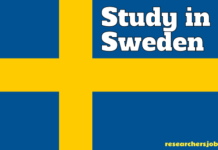PhD Studentships: University of Glasgow: This PhD project delves into the intricate relationship between the microbiome and two critical health conditions: Inflammatory Bowel Disease (IBD) and its associated risk factor, Colorectal Cancer (CRC). Led by a team of esteemed researchers including Dr. Johan Vande Voorde, Dr. Kevin Myant, Prof. Konstantinos Gerasimidis, Dr. Shahida Din, and Prof. Owen Sansom, this project aims to unravel how dysbiosis within the gut microbiota contributes to the progression of IBD and its link to CRC. By employing advanced methodologies, the project seeks to identify microbial alterations and metabolite changes that drive disease severity, paving the way for innovative intervention strategies.
PhD Studentships: Leveraging the Microbiome to Target IBD and IBD-associated Colorectal Cancer
- 🦠 IBD as CRC Risk Factor: Inflammatory Bowel Disease (IBD) poses a risk for Colorectal Cancer (CRC).
- 🔄 Pathological Interactions: IBD development involves interactions between immune, environmental, and microbial factors.
- 🩸 Dysbiosis and Inflammation: IBD correlates with gut microbiota dysbiosis, leading to chronic inflammation and potential carcinogenesis.
- 🧬 Microbiome’s Role in IBD-CRC: Study aims to understand how dysbiosis affects microbial metabolite abundance and influences disease progression.
- 🐭 Novel Mouse Model: Developed a mouse model mimicking IBD-CRC histopathological features to assess genetic, environmental, and microbial contributions.
- 📊 Aim 1: Microbiota Alterations: Investigating changes in intestinal microbiota using 16S amplicon sequencing, correlating with disease severity.
- 🧪 Aim 2: Bacterial Metabolite Alterations: Analyzing longitudinal samples to identify changes in metabolites and their correlation with disease progression.
- 🧪🐁 In Vitro and In Vivo Studies: Conducting functional studies on individual metabolites and validating findings through in vivo supplementation.
- 💊 Modulating Microbiome for Treatment: Testing the impact of microbial depletion on disease progression and designing intervention strategies based on microbiome and metabolite data.
Summary Table:
| Study Area | Location | Eligibility/Qualification |
|---|---|---|
| Microbiome in IBD and IBD-associated CRC | University of Glasgow | PhD in relevant field; experience in preclinical models, metabolomics, and molecular biology preferred |
Study Area: Microbiome in Inflammatory Bowel Disease (IBD) and IBD-associated Colorectal Cancer (CRC)
Location: University of Glasgow
Eligibility/Qualification: Prospective candidates should hold a PhD in a relevant field and preferably possess experience in preclinical models, metabolomics, and molecular biology.
Description: Inflammatory Bowel Disease (IBD) poses a significant risk factor for Colorectal Cancer (CRC), with dysbiosis in the gut microbiota playing a pivotal role in disease progression. This project, led by a collaborative team of experts, aims to dissect the complex interplay between microbial alterations, metabolite abundance, and disease severity in IBD-CRC. Through a combination of cutting-edge techniques including longitudinal metabolomics analysis, 16S amplicon sequencing, and in vivo studies utilizing genetically engineered mouse models, the project endeavors to uncover novel insights into disease mechanisms. By understanding the molecular underpinnings of IBD-CRC, the project aims to develop targeted intervention strategies to improve patient outcomes.
How to Apply: For further information on the project or to make informal inquiries, please contact Dr. Johan Vande Voorde at johan.vandevoorde@glasgow.ac.uk. To submit your application, kindly visit the University of Glasgow website. When applying, ensure to upload the completed recruitment form along with your application.
Last Date: Until position filled









